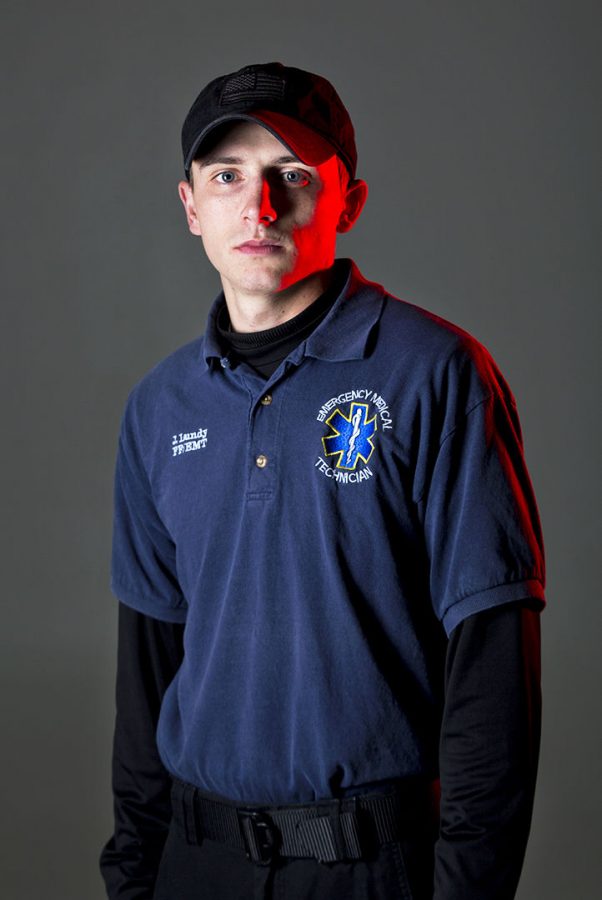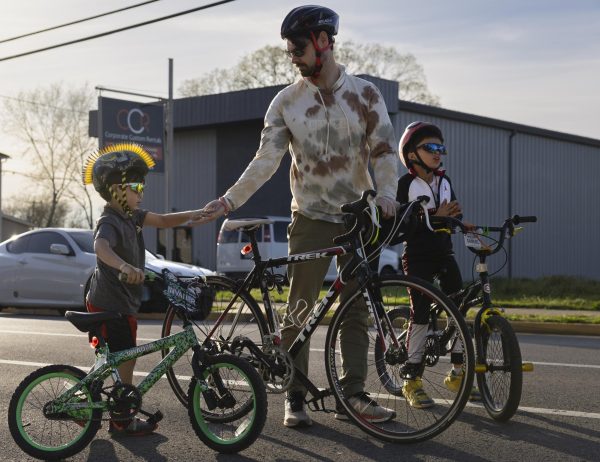Student shares experience with EMS
November 28, 2017
The process of becoming a registered emergency medical technician (EMT) through WKU’s College of Health and Human Services has become grown difficult since WKU’s 2017 budget cuts.
The cuts suspended WKU’s paramedicine program, which served as students’ final step in EMT training before becoming certified and has forced students interested in the field of emergency medical services (EMS) to complete their training elsewhere.
According to an email from WKU’s Dean of the College of Health and Human Services Neale Chumbler, the cut was made “primarily due to resource and enrollment issues,” and because of “a tremendous need for more faculty and staff.”
On account of an existing statewide shortage of EMT professionals and an already unstable pool of potential student applicants, this cut is expected to further worsen the situation.
Elizabethtown senior James Lundy is one the most recent graduates of WKU’s now eliminated paramedicine program and works currently as manager of EMS at Beech Bend Raceway Park in Bowling Green.
Lundy’s father served as a firefighter EMT and sparked Lundy’s interest in volunteering at local fire departments, which he did from high school and college, becoming a certified firefighter EMT along the way.
As a firefighter EMT, Lundy was responsible for medical, motor vehicle accident and terrorist response. In fact, according to Lundy, fire emergencies have become the smallest portion of run volume for the fire department, whereas medical response makes up around 80 percent of runs.
Lundy volunteered at fire departments around the Bowling Green area for most of his time at WKU until he started managing EMS at Beech Bend Raceway.
Lundy transitioned from fire to full EMT because he especially enjoys the medical side of rescue, and because fire department volunteers are not paid.
As an EMT, Lundy’s job is unpredictable and demanding.
“It’s random,” Lundy said. “No call is the same. No shift is the same.”
EMTs must be able to perform medical interventions, interpret heart rhythms, diagnose possible drug dosages, understand when a contraindication, a specific situation in which a particular drug or procedure should not be performed as it might harm the person receiving it, is necessary and possess an advanced understanding of anatomy and physiology.
“We are basically the emergency room on wheels,” Lundy said.
Notwithstanding these extensive responsibilities and expectations, working multiple jobs has become the norm for EMTs across the country.
“Everybody that works in EMS and fire, they work multiple jobs,” Lundy said. “Nobody goes into this field for the money.”
Lundy said he describes the majority of current EMS jobs as “underpaid, understaffed, with high run volume,” and notes that “[it’s] not uncommon for multiple agencies to be on mandatory overtime because they can’t staff their ranks fast enough.”
Paramedicine program cuts across the state, including those at WKU, have left Kentucky with only four areas wherein potential EMTs may receive their necessary certifications, according to Lundy.
Lundy believes a lack of adequate training areas, the public’s growing distrust of public service officials, namely the police, and the profession’s low-pay and intense demands are all partly responsible for nationwide first responder deficits.
“It’s a very dangerous job, and it’s a very low-paying job, and that’s why so many don’t do it,” Lundy said while mentioning the often dangerous conditions EMTs face, such as during the recent Las Vegas shooting. “I mean, you can go in McDonald’s or Lowe’s and make almost as much as I do without the risk. Why not?”
Paired with potential pension cuts and the trauma first responders encounter on a daily basis, it’s no surprise that EMTs are in high demand.
“We all compartmentalize,” Lundy said on how EMTs cope with the graphic nature of the job. “Once you’ve seen enough, you just kind of get used to it. You get numb.”
However, not all adjust so easily. Lundy attributed the majority of line of duty deaths among first responders to suicide, a crisis substantiated by JEMS, Journal of Emergency Medical Services, and EMS1.com, a website designed by and for the EMS community.
Despite the current state of EMTs nationwide and the always shifting nature of medicine, Lundy said he believes EMS will adjust accordingly and continue to improve upon and advance its treatment capabilities.
“We get asked all the time, ‘Why do you do this?’ The simple answer is not a damn one of us knows,” Lundy said. “Everybody’s got that sense to help other humans around them, but for some, it’s just their way of life, and that’s how it is for most of us.”
He is set to work at Louisville Metro EMS upon graduating in December.
Reporter Griffin Fletcher can be reached at 270-745-2655 and [email protected].

























